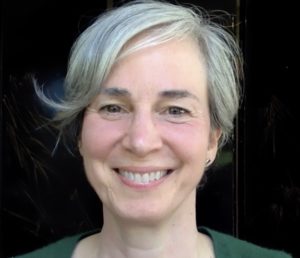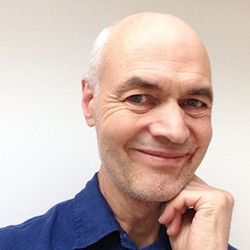We often think of negotiation as a win/loss proposition that focuses around business deals, finances, large purchases and perhaps hostage situations. What we don’t consider is that negotiation is part and parcel of the work we do in clinic as we help our patients to integrate aspects of themselves or their situation into a higher state of health and wellness.
In this conversation with Margot Rossi and Nick Pole we discuss the FBI Hostage negotiation methods of Chris Voss and how the principles he writes about are not only useful in your clinical work, but you might already be using some of his ideas.
LIsten into this discussion of how empathy, rapport, and lack of aggression can help you bring forth hidden resources that your patients already have for healing.
In This Conversation We Discuss:
- Negotiating illness and health
- Working with layers of trauma
- Until the trauma is in the room again, the negotiation with it cannot begin
- The power of being able to say “no” to move a negotiation forward
- Don’t make the mistake of of thinking humans are rational beings
- Considering the parts of us that hold us hostage
- Embodied presence gives us an anchor in the moment
- The importance of timing
- Listening with more than the ears
- Befriending the “problem”
- Helping patients hear what they are saying, but have not yet heard
- Thoughts on manipulation
- It’s impossible to observe a system without also interacting with the system
- The wisdom of Sun Zi and the Art of War
Our language reflects the kind of attention we pay—empathic attention, judgmental attention, biased attention, open and accepting attention. Our attention influences not only how and what we see and how we respond to it, but our patient’s response to our treatment and recommendations. Being mindful of our language and our attention has a huge impact on the relationship and negotiations that take place between the patient and practitioner and the patient with themselves and their health concerns.
 Margot Rossi, L.Ac
Margot Rossi, L.Ac
It’s not an exaggeration to say that Eastern medicine and philosophy saved my life. They have rocked my world for over thirty years. Along the way, here and in China, I’ve learned much from remarkable teachers, including my family, peers, patients and students. My mission is to share that bounty of wisdom with my community
In private practice, I see myself primarily as an educator, aka wizard of possibilities. Creating a clinic environment conducive to learning and being a neutral sounding board, I use the interview process as my main modality for diagnosis and treatment. Patients and I explore the fabric of reality and build an awareness of experience and perceptions. Along with mindfulness, using nature’s systems to understand ourselves helps us feel right at home and capable of shifting with self-compassion, confidence and resourcefulness.
Another essential in my repertoire is movement therapy either Dao Yin or yoga. I find mindful movement and breathing can influence all issues regardless of where they’re housed, just like water can flow in places nothing else can or wants to go. This medicine keeps reminding me: there is wonder here, simply awaiting our presence.
Tune into what Chris Voss calls the ‘involuntary neurological telepathy’ between you and your patient. Stop thinking, slow down, and bring your whole focus to their words, tone and gestures. Repeat back those exact words as if they were the most precious piece of information that person will ever hear in their life. Then wait to see what happens…
 Nick Pole
Nick PoleI’ve been practicing, teaching and writing about shiatsu since I graduated from the Shiatsu College in the UK in 1989. I spent the first ten years of my shiatsu studies trying to find the best teachers I could and then doing my best to copy them. It always worked for a while, but then I would come back to the same intangible sense that something important was missing. Meanwhile, to improve my skills as a shiatsu teacher, I studied NLP in some depth and that led me to Clean Language. That was it! – a way to bring language into my sessions by asking questions that make sense to the body. With its Zen-like simplicity and rigor, Clean Language invites both practitioner and client to listen to themselves in a truly mindful way.
How could someone who loved language as much as I did come to be practicing shiatsu, which in its original Japanese form at least is done almost without any words at all? Bringing this subtle and elegant questioning process into my sessions helps my clients listen to themselves, and helps us to come to a shared understanding of what they want to achieve. When you invite the bodymind into the conversation like this, painful and frustrating symptoms can rapidly turn into signposts on the path towards the kind of life a person really wants to be living.
And in researching my book Words That Touch (2017), I found the neurological explanation for Lao Tzu’s great riddle: the Tao that can be spoken of is not the “constant/eternal/real” Tao because speech traps us in the left brain hemisphere’s abstract world of names, concepts and categories, at one remove from reality.
Links and Resources
Preorder Margot’s book, To Be Like Water: Cultivating a Graceful and Fulfilling Life Through the Virtues of Water and Dao Yin Therapeutic Movement that will be released later this summer
Read Nick’s book Words That Touch, on the practice and use of Clean Language
